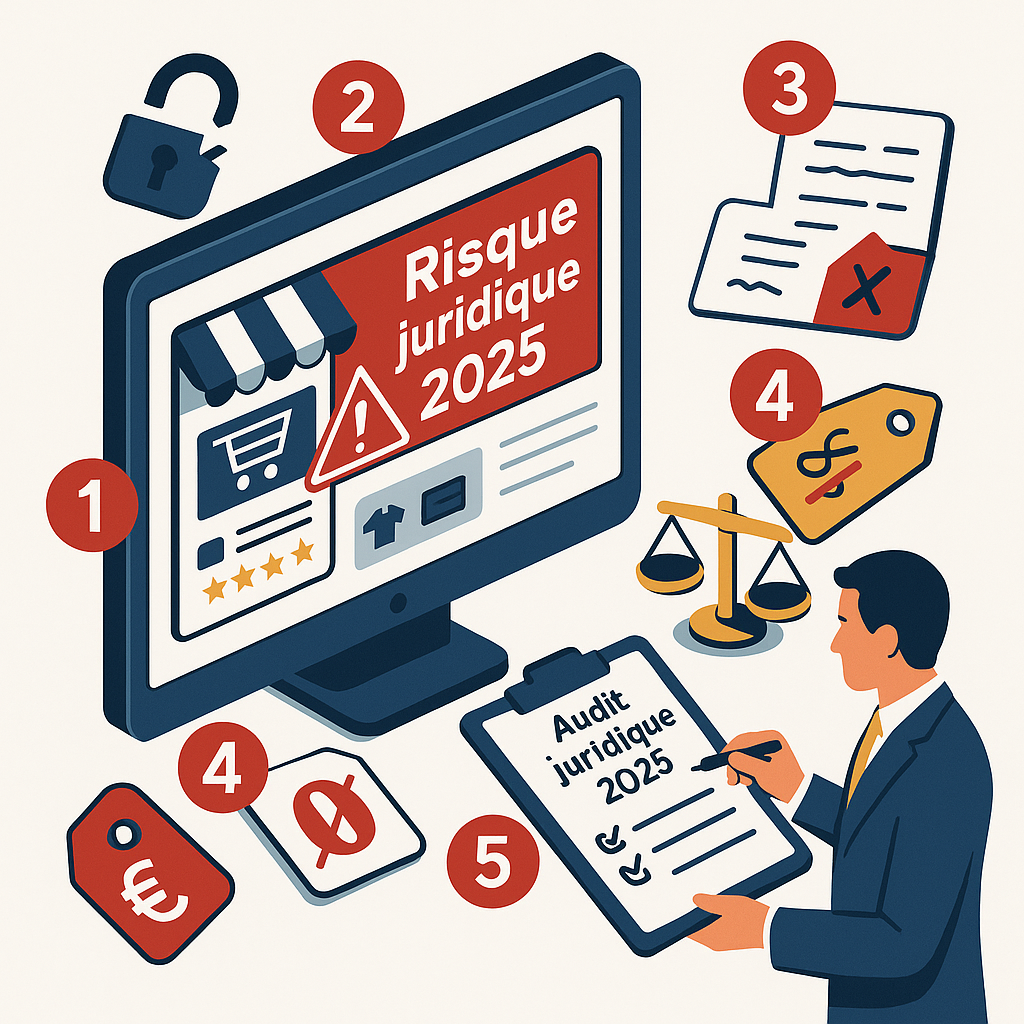
E-commerce : 5 risques juridiques majeurs pour les entreprises en 2025
Le paysage du commerce électronique évolue rapidement, et avec lui, les défis juridiques auxquels font
A sound legal strategy for your dropshipping business ensures that your interests are protected.
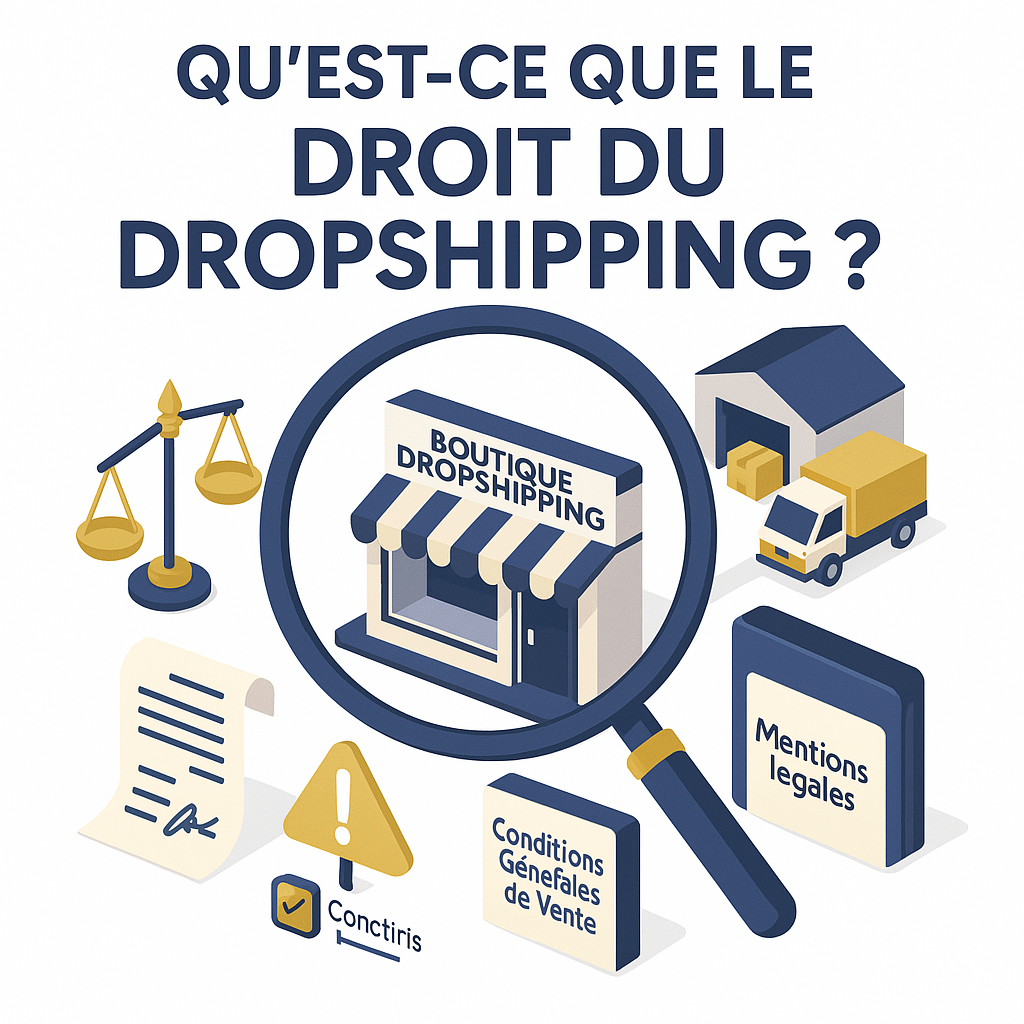
E-commerce law applicable to drop shipping is a vital branch of commercial law that governs online transactions between companies and consumers.
This complex area of law covers everything from regulations governing the sale of goods and services online, to obligations relating to personal data protection and consumers' right of withdrawal.
This constantly evolving sector requires special attention to ensure compliance with national and international regulations, and to ensure fair and secure online sales practices.
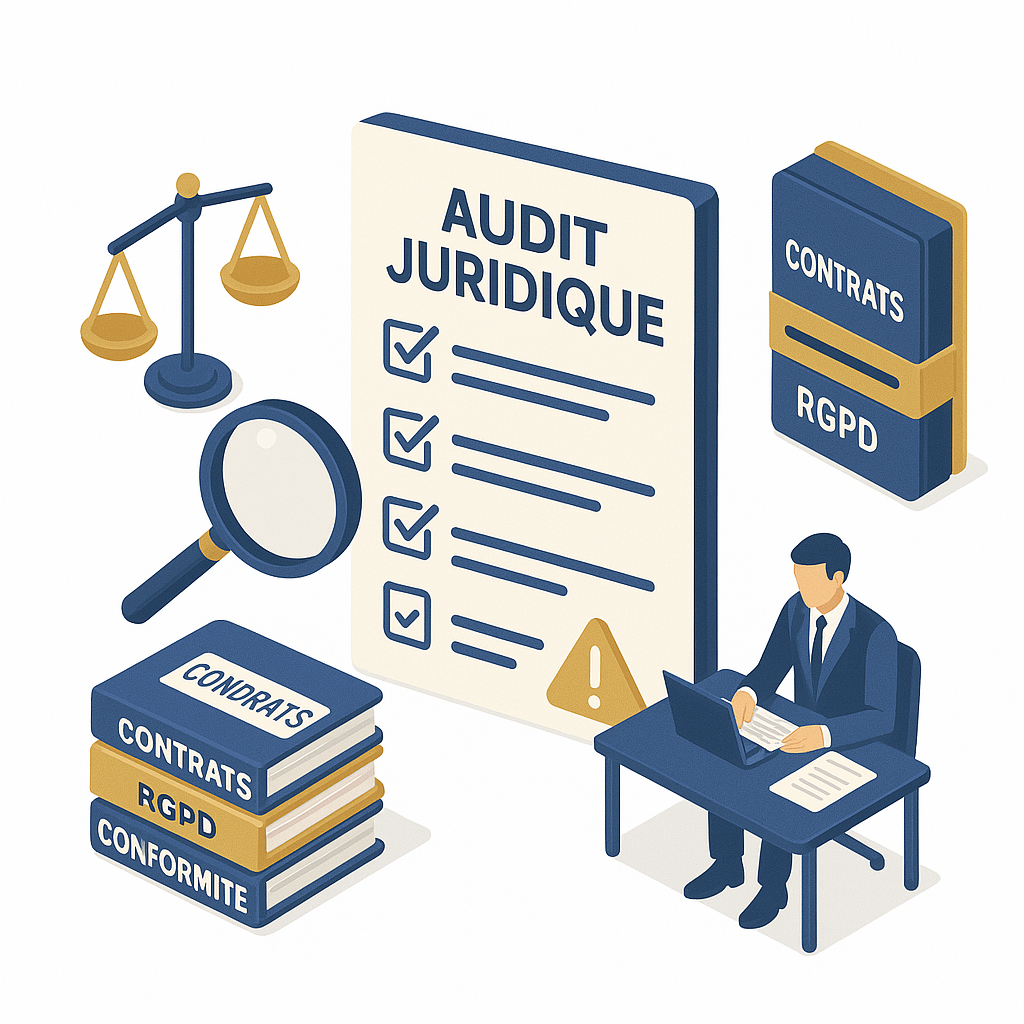
As an e-commerce lawyer, my first task is to carry out a complete audit of your e-commerce site to assess its compliance with current regulations.
This includes examining legal notices, general terms and conditions of sale (GTCS), personal data protection practices, and order and delivery processing procedures.

Based on the initial analysis, I draft or update key documents such as T&Cs, privacy and data protection policies, and legal notices, ensuring their compliance with current laws, including the RGPD.
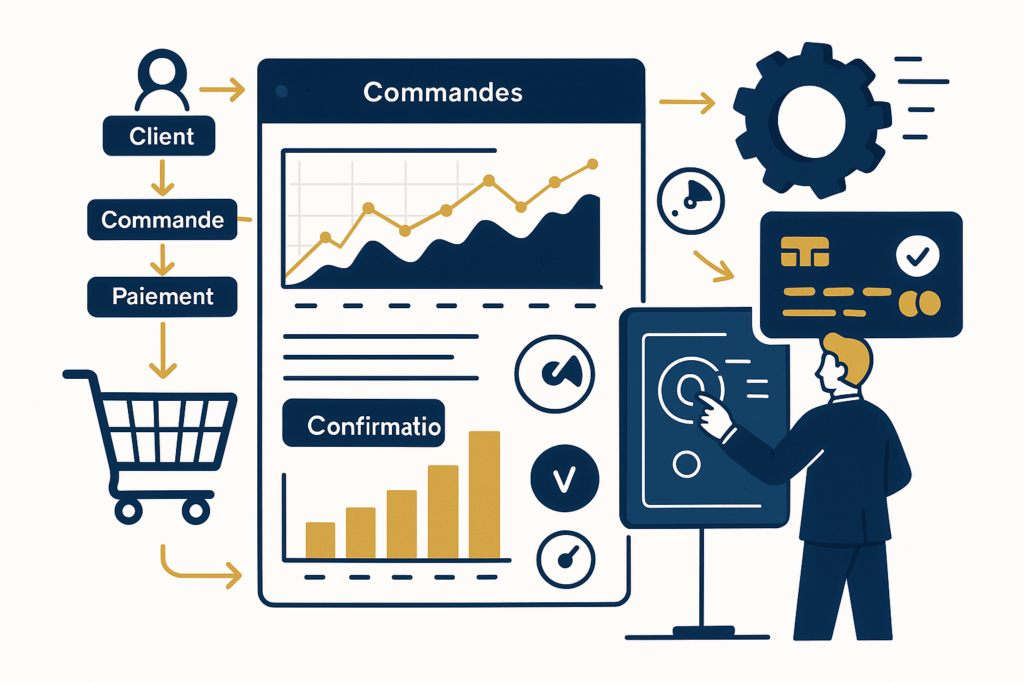
I assist in structuring order and payment processes to ensure transparency and compliance with consumer rights, including the right of withdrawal, payment terms and delivery deadlines.

In this phase, I guide you in implementing RGPD-compliant practices, including obtaining user consent, managing cookies and trackers, and implementing privacy policies.

I advise you on the legal aspects of online advertising and marketing, including email marketing campaigns, targeted advertising, and compliance with the rules on commercial communications.

I offer training courses for you and your teams to help you understand and correctly apply the rules of e-commerce.

Finally, I offer you ongoing legal monitoring to keep you informed of legislative developments affecting e-commerce. I'll make sure your site remains compliant, and adapt your practices in line with new regulations and market trends.
E-commerce sanctions are designed to ensure compliance with the rules governing online transactions. They aim to protect consumers, ensure fair and transparent business practices, and maintain confidence in digital commerce. It is therefore essential to be accompanied by an e-commerce lawyer.
Violations of e-commerce regulations can result in a variety of sanctions, including administrative fines, imprisonment and injunctions to correct non-compliant practices.
These sanctions underline the importance of compliance with e-commerce regulations to protect consumers and maintain fair and transparent business practices in the digital world.

Le paysage du commerce électronique évolue rapidement, et avec lui, les défis juridiques auxquels font
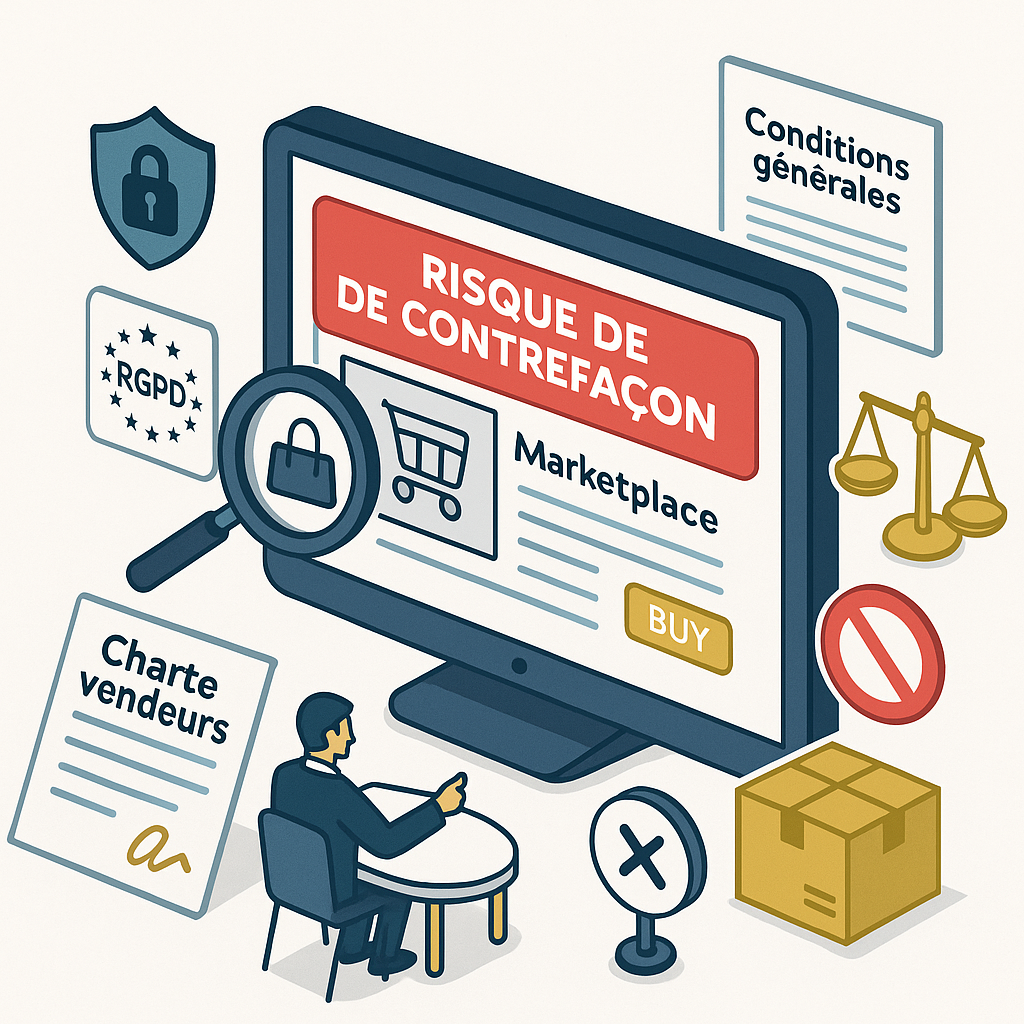
En 2025, la vente de produits contrefaits sur les marketplaces a pris une ampleur considérable,
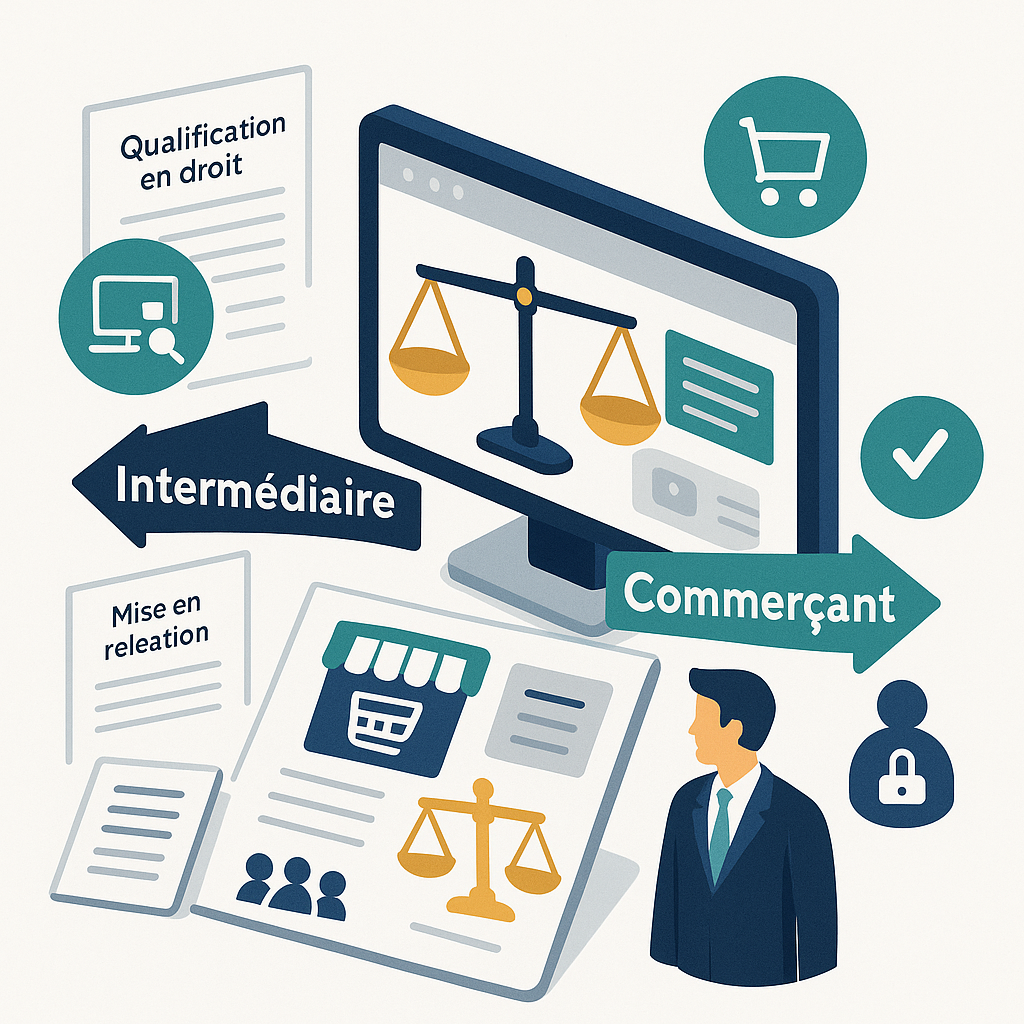
Le statut juridique des marketplaces est un enjeu fondamental et se définit entre 2 catégories
The dropshipping is a fast-growing business practice that presents specific legal challenges. As alawyers covering dropshipping issuesissues, our firm offers in-depth expertise to help online merchants ensure their legal compliance and compliance. Whether you are new to the field or looking to optimize your operations, it is crucial to understand the legal implications of dropshipping to avoid risks and maximize your success.
We help you navigate through the complexities of regulatory complexitiesregulatory complexities solid contracts and protect your intellectual property. When you use our services, you benefit from personalized support to secure your business and ensure legal compliance. Our expertise covers all aspects of dropshippingfrom VAT to protection against disputesso you can concentrate on growing your business with complete peace of mind.
The dropshipping is an online sales model in which the merchant does not stock the products he sells. When a customer places an order, the merchant buys the product from a supplier who ships it directly to the customer. This model reduces storage and inventory management costs, but also presents challenges, notably in terms of quality control and delivery times.
The main advantages of dropshipping include low initial costs, simplified inventory management and the ability to test different products without major financial risk. However, the disadvantages include lower profit margins, dependence on suppliers for quality and delivery times, and customer service challenges.
In France, dropshippers must comply with the following requirements legal obligations. It is essential to choose the right legal status for your business, whether as an auto-entrepreneur, a société à responsabilité limitée (SARL), or a société par actions simplifiée (SAS). You must also comply with business regulationsincluding consumer protection, general terms and conditions (CGV), and personal data obligations in accordance with the RGPD.
As a dropshipper in France, you need to understand the rules regarding VAT. Online sales are subject to French VAT if your customers are mainly in France. If you sell to customers in other European Union countries, intra-Community VAT rules apply. You must register for VAT and charge VAT at the rate applicable to the location of your customers.
To minimize the tax burden, it is essential to adopt appropriate effective strategies. This includes choosing the right VAT regime and rigorously managing your tax returns. Calling on a specialized lawyer can help you optimize your tax situation and avoid costly mistakes.
Understanding and managing VAT correctly is crucial to maintaining compliance and maximizing profits from your dropshipping business.
The drafting of contracts is essential to securing your dropshipping business. The general terms and conditions of sale (GTCS) must be clear and precise, covering aspects such as delivery times, return policies and guarantees. In addition, it's crucial to negotiate solid agreements with your suppliers to guarantee product and service quality.
Protect your intellectual property is vital to avoid counterfeiting and litigation. Registering your trademarks and patents can protect you against unfair competition. In the event of a dispute, our firm offers you legal assistance to defend your rights and resolve disputes quickly and efficiently.
Navigating the world of dropshipping requires specialized legal expertise. By calling on our firm, you'll benefit from personalized support to secure your business and ensure your legal compliance. From VAT to drawing up contracts to protecting your intellectual propertywe're here to help you every step of the way.
Contact today to discuss your needs and get tailored advice.